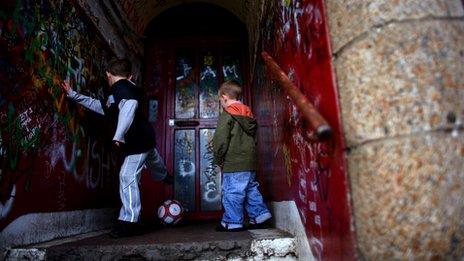Call for action to tackle child poverty attainment gap
- Published
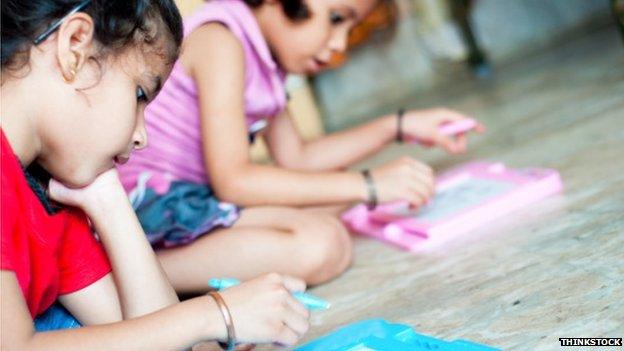
The report said more action was required to tackle the attainment gap
More needs to be done to help children from the poorest families do well at school, according to a new report.
The Joseph Rowntree Foundation (JRF) said the attainment gap remained "persistent and significant".
Its report, produced by Strathclyde University, argued the gap began before children started school and widened as they got older.
It said five-year-olds from poorer families were about a year behind in problem solving and vocabulary.
Jim McCormick from the Joseph Rowntree Foundation said: "Scottish education serves many children well, but too many poor children risk becoming poor adults unless we close the attainment gap.
"This limits their life chances and prospects, which not only has a knock-on effect for them through unfulfilled potential, but for Scotland's economic performance."
Home background
Co-author of the report, Sue Ellis, from Strathclyde University, added: "Inequality between pupils from poorer and better off families does not need to continue.
"Schools need to pay greater attention to closing the attainment gap but they need help in the form of clear, evidence-informed and helpful advice from government, national agencies, local authorities and universities.
"Every teacher wants to do their best for all their children and it doesn't need to cost a lot of extra money. This report shows how this can be achieved - everyone has a responsibility to address the poverty experienced by children throughout their school life."
The report argued that despite an overall increase in school standards, children from low income backgrounds were still being left behind and achieving less than their better-off peers.
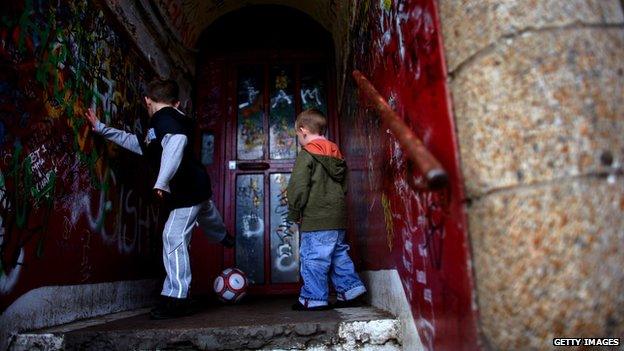
Children from poorer families were also more likely to leave school early and without a qualification.
It said: "Children who grow up in poverty tend to do less well in education because of factors in their home background, for example having parents who are more stressed, less able to afford educational activities and resources and less well-placed to help them with their school work."
The study found that in early secondary school, only 28% of children from poorer families were performing well in numeracy, compared with 56% of those from advantaged backgrounds.
Children from poorer families were also more likely to leave school early and without a qualification.
The foundation said that after leaving school, poorer children were three times as likely to be unemployed, twice as likely to work only part-time hours and if they did find work, they would earn only about half as much as children from richer backgrounds.
The report made a number of specific recommendations which included:
The Scottish government should raise awareness of, and provide clear guidance on, how schools can close the gap
Education Scotland and local councils need to ensure that every school has the data to tell them what their attainment gap is and what impact their actions are having for different groups of children
Every head teacher and teacher needs to use the data and take action by designing a curriculum that meets the needs of the community the schools serves.
The Scottish government has said the reasons fore the attainment gap are complex, including factors in a child's home background.
Education Secretary Michael Russell told BBC Radio's Good Morning Scotland programme that progress was being made in closing the gap, with "substantial sums" being invested to ensure that continued.
He added: "I'm very happy to welcome the report because it helps us understand how persistent this problem is, how many things need to be done, things like investing in the early years which we are doing very, very considerably,"
Mr Russell said other measures already in place included:
Working with "schools and data"
Making sure that there is "ambition" in the system
Ensuring that the inspection system works
He said: "All of these things are happening, but we can always do more and I entirely agree that we should be doing it in a cross-party way.
"That is the way we will solve a problem that is actually persistent in almost every country now".
Vocational education
Meanwhile, the Scottish Labour Party has unveiled what it described as a "challenge paper" to look at ways of tackling the attainment gap.
The 55-page document was produced by the party's social justice sounding board and will help frame the party's policies for the next Scottish election in 2016.
The paper highlighted a number of problems and potential solutions including focusing preventative spending on the first few years of a child's life, investing in flexible childcare and trying to give school pupils more access to vocational education.
The paper also said there must be a greater willingness to take risks and try new things. It talked of pilots and projects which were abandoned after a short period of time regardless of results.
The party's social justice and welfare spokeswoman Jackie Baillie told Good Morning Scotland: "We need to get a move on. The Scottish government have had eight years. This issue is wholly devolved and yet there seems to be a lack of urgency.
"I just wish they would spend more time on closing the education gap,because that is something we would all sign up to cross-party rather than simply having an obsession about the constitution because then we might have just made more progress."
- Published26 April 2014

- Published10 March 2014
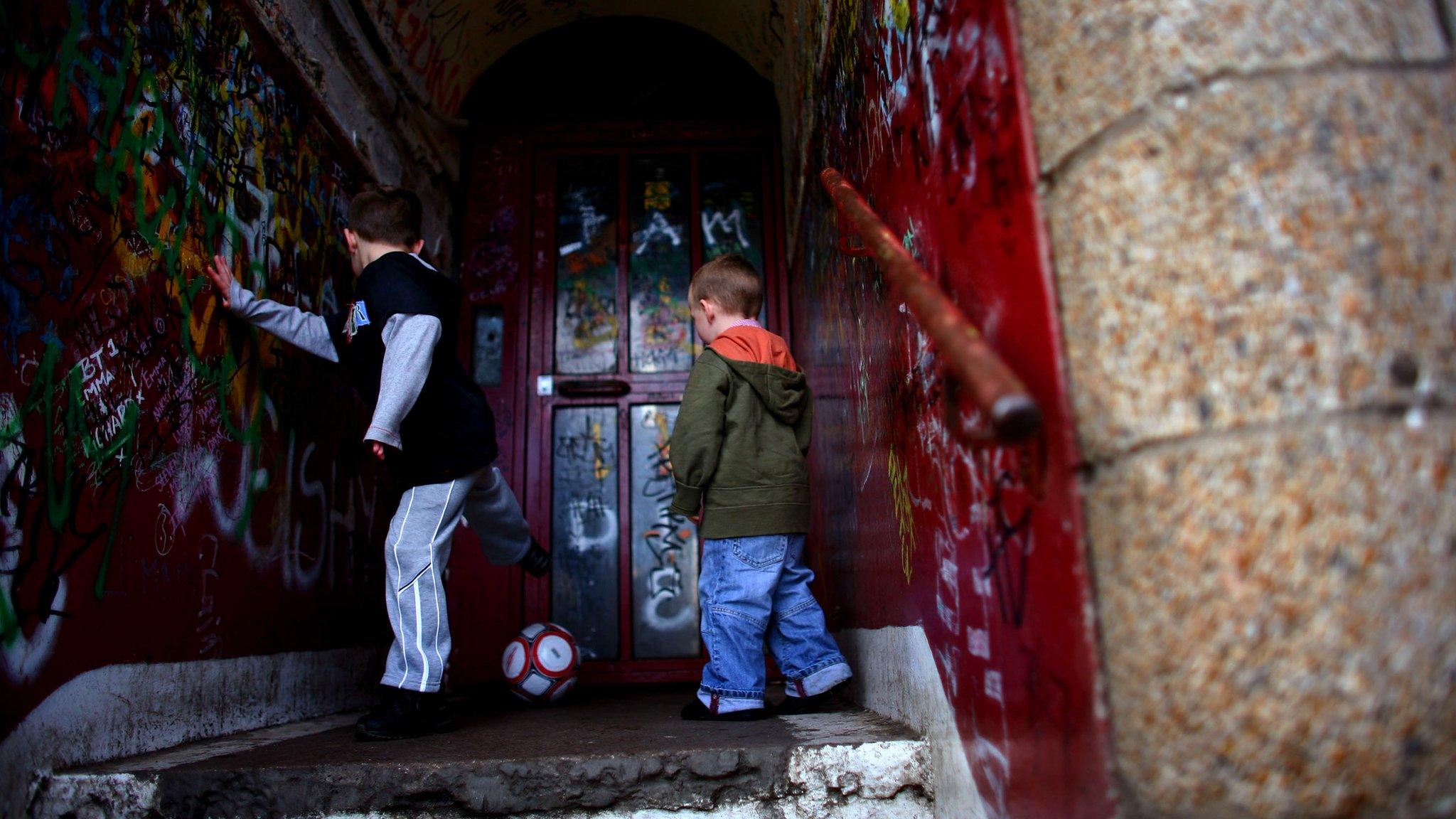
- Published4 March 2014

- Published2 February 2014
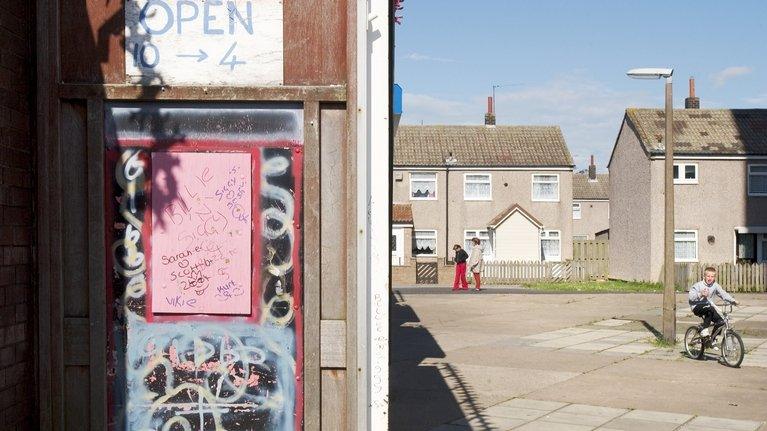
- Published18 July 2013
